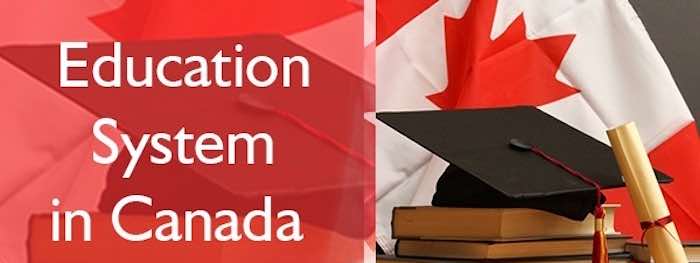Canada/Enero de 2017/Autor: Alexander Collin/Fuente: Canada Free Press
RESUMEN: Un profesor de ojos estrellados escribió recientemente en el Ottawa Citizen: «No debemos preocuparnos por los logros académicos de los dotados. … en vista de las maravillosas oportunidades que ahora se encuentran fuera de la escuela, en Internet y en la comunidad para que todos aprendamos la ciencia, la geografía, la política, la danza, la música, los deportes y todos los temas más allá del aula «. Primero, para mantener su lugar en un mundo competitivo, Canadá necesita todos los logros que puede obtener y, obviamente, una masa crítica de talento se refuerza a sí misma, en la educación como en la mayoría de los esfuerzos. En segundo lugar, todos los estudiantes quieren desafíos sustanciales en su propio nivel. Hay buenas razones por las que Inglaterra tiene escuelas de gramática y Alemania, el Gymnasium. En cualquier caso, la Convención de las Naciones Unidas sobre los Derechos del Niño ordena «el desarrollo de la personalidad, los talentos y las capacidades mentales y físicas del niño a su máximo potencial».
Why’s it necessary to consider whether students learning calculus should be schooled with ones who can’t tell the product of 11 x 12?
A starry-eyed teacher wrote recently in the Ottawa Citizen: “We should not worry about academic achievements of the gifted. … in view of the wonderful opportunities that now lie outside of school, on the internet and in the community for all of us to learn science, geography, politics, dance, music, sports and every subject far beyond the classroom.”
First, in order to keep its place in a competitive world, Canada needs all the achievers it can get and, obviously, a critical mass of talent is self-reinforcing, in education as in most endeavors. Secondly, all students want substantial challenges at their own level. There are good reasons why England has grammar schools and Germany, the Gymnasium. In any case, UN Convention on the Rights of the Child mandates “the development of the child’s personality, talents and mental and physical abilities to their fullest potential.”
Actually, the worst is the education that Canada’s burgeoning underclass gets. They’re all people who are now or were once schoolchildren, and most had equal potential at birth as the lucky ones. But they’re the millions—yes, millions—of Canadians that Statistics Canada says lack literacy skills necessary for society and the economy. Too many are uneducated and unskilled, unemployed and all but unemployable given the lack of effective support systems. Many are addicted, without hope, sick, homeless or in prison. Think fentanyl! Their human deprivation is unconscionable and the state’s financial cost is unsustainable.
Education for immigrants is also a mixed bag. I know of an Ottawa schoolteacher who advised a parent to transfer her daughter to another school. “Because of the high Somali enrolment,” she said, “we have to teach to a much lower standard.” How much lower than what standard anyway? How about remedial coaching? Immigrant children aren’t stupid.
For too many, systemic educational deprivation begins when schooling starts, with the condescension of low expectations. First, there’s the absurdity of reading readiness. It continues later into university by requiring attendance at stultifying lectures—like how to teach maths in primary school, for four credits toward a B.Ed at McGill.
With phonics (sounding out), reading at age five should be universal. Otherwise, reading ability gained late, or not at all, may cause learning disability and behavioral problems. In the slums of Naples, Maria Montessori had all her children reading and writing before they were five—as I was at that age, with home-schooling for two hours daily.
Most children thrive on mentoring, as opposed to being talked down to. For example, Shakespeare, Dickens, Conrad and Jack London left school by the age of fourteen. R.J. Mitchell, designer of the Spitfire aircraft of World War II, left school at sixteen. Apprenticed as an engineer, he was chief aircraft designer at the age of twenty-four. The driving force for founding the Ottawa children’s hospital, Dominic Conway, finished school at sixteen. After studying medicine at Cambridge, he got his MD’s shingle at twenty-two. But in Canada, he would have needed a prior degree, churning for four more years before admission to med school.
I have the Grade 6 report, with mostly B ratings, for a student attending school near Ottawa. Evidently smart enough but under-challenged, N told me school bored him to tears. His English report says, “N can read a variety of fiction and non-fiction materials (e.g. short stories, novels, myths, etc.).” The French report says, “With frequent teacher assistance, he can write negative sentences using “ne … pas” and the contracted form when required.” For maths, it says, “N is developing proficiency in multiplying two and three digit numbers. He can round whole numbers to the nearest 10, 100, 1,000 and 10,000 … He can divide by one and two digit divisors.” This is Grade six!
Fuente: http://canadafreepress.com/article/canadas-dumbed-down-education-systema-social-and-economic-disaster#






 Users Today : 248
Users Today : 248 Total Users : 35459843
Total Users : 35459843 Views Today : 418
Views Today : 418 Total views : 3418390
Total views : 3418390